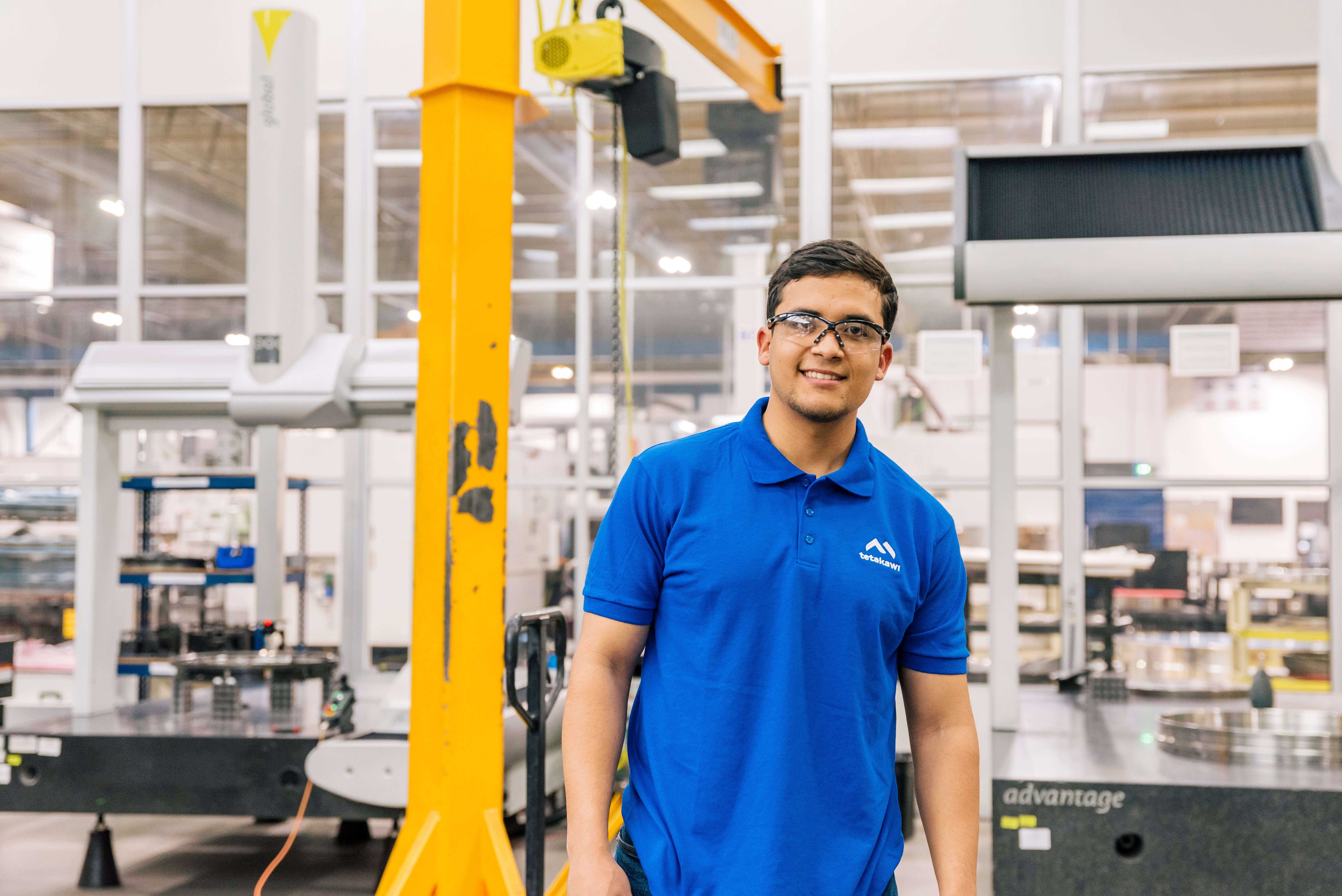Many manufacturers move to Mexico to take advantage of the comparatively lower labor costs and other operating expenses. However, a crucial aspect often overlooked is the high cost associated with employee turnover, which, in many cases, can be significantly higher, especially in industrial hubs like Tijuana, Ciudad Juárez, and Monterrey. Data from Mexico’s 2019 Economic Census reveals that while annual employee turnover rates are around 25% for companies with 51 to 250 employees and 31% for those with more than 250 employees, regions such as Tijuana, Ciudad Juárez, and Monterrey experience even more elevated rates. These high employee turnover rates are not singular to Mexico, but some factors impacting retention are unique to the Mexican labor market, particularly in the manufacturing sector.
In this comprehensive exploration of the turnover landscape in Mexico, we will delve into the dynamics of high turnover and its multifaceted impact on businesses. From understanding the root causes of this phenomenon to examining regional variations in turnover, we'll provide valuable insights for manufacturers seeking to navigate this challenge effectively.
Additionally, we will spotlight Mazatlán, a rising star in Mexico's manufacturing landscape. Mazatlán offers a unique solution to the turnover challenges faced by manufacturers. With its competitive yet cost-effective labor market and a burgeoning demographic advantage, Mazatlán stands out as an emerging hub that holds promise for businesses seeking to build a stable and committed workforce.
Mexico's Turnover Problem
In a 2021 analysis of research on employee turnover and retention in Mexico, researchers with the University of Texas at El Paso (UTEP) and Instituto Tecnológico Autónomo de México (ITAM) concluded that the high number of manufacturing firms operating in Mexico have cultivated a high rate of employee turnover in the sector. As the researchers explain, the prevalence of jobs with low training requirements or demand for specialized skill sets makes it easy for employees to move from one employer to another.
During the Great Resignation of 2021, U.S. employers saw employees leave in unprecedented numbers. Workers searching for jobs that provided greater purpose or flexibility also found moving to a new job the most effective way to secure a sizable pay raise. But, as Paulina Navarro, CFO and cofounder of corporate culture consultancy Thrust, explains, “[W]hat happened to the U.S. during Covid has been happening in Latin America for quite a while now … we’ve been willing to move places or make major changes to retake control of our lives.”
According to the UTEP and ITAM researchers, the need to control work-life balance – or rather, to eliminate work-life conflicts – is another major cause of employee turnover in Mexico. The researchers note that when conflicts occur between employee and family member roles, Mexican employees may be far more likely to quit their jobs than employees in other countries. In other words, when conflicts emerge or wages stagnate, your Mexican manufacturing workforce is prepared to seek other options. As a result, a strong focus on retention is essential for foreign investors in Mexico.
Examining Regional Turnover Trends in Mexico
While the turnover problem is widespread across Mexico, it is particularly pronounced in major manufacturing hubs such as Tijuana, Ciudad Juárez, and Monterrey. These areas, once celebrated for their booming industrial activity, are now facing critical challenges due to escalating turnover rates.
Tijuana’s Turnover and Labor Shortage
In Tijuana, the turnover situation is critical. The region is experiencing annual turnover rates as high as 120% in some industrial parks, significantly higher than the national average, as reported by El Imparcial. This extreme turnover rate presents a substantial challenge for companies. For example, a company with 150 employees in Tijuana would need to hire as many as 180 new employees each year just to maintain current staffing levels. This constant influx of new hires not only impacts operational efficiency but also increases training and integration costs.
Additionally, Tijuana’s industry currently faces a labor shortage, with a reported deficit of about 14,000 employees. This shortage exacerbates the turnover problem, making it difficult for industries to find and retain qualified personnel.
Ciudad Juárez: Vacancies and Turnover
Ciudad Juárez also faces significant labor challenges. The city reports a monthly turnover rate of about 10%, coupled with over 21,000 job vacancies, as highlighted by Diario.mx. This high turnover rate and large number of vacancies indicate a pressing need for a stable workforce, something that is increasingly difficult to maintain in such a competitive and fluid job market.
Monterrey: Rising Turnover Amidst Increasing FDI
Monterrey has seen a significant surge in Foreign Direct Investment (FDI), particularly from Asian companies, which has transformed the city into a burgeoning industrial hub. This influx of investment has not come without its challenges, notably in workforce management. In 2021, the monthly turnover rate in Monterrey was around 3.62%. Fast forward to 2023, and this rate has escalated to 5.41% per month, according to Reforma. This upward trend in turnover is a clear indicator of the increasing challenges companies face in retaining their workforce.
The arrival of Tesla and its supply chains is poised to impact this scenario further. As Tesla and its associated companies set up operations, the demand for skilled labor is expected to rise sharply. This increased demand, coupled with the already competitive labor market, is likely to exacerbate the turnover problem. For a city like Monterrey, which is already dealing with rising turnover rates, the entry of such a major player in the automotive industry could potentially lead to even higher turnover rates.
The Multifaceted Cost of High Turnover in Mexico’s Manufacturing Sector
In Mexico's manufacturing hubs, such as Tijuana, Ciudad Juárez, and Monterrey, understanding the comprehensive costs of high turnover is vital, particularly for industries where precision and reliability are non-negotiable, like medical devices and aerospace components manufacturing.
- Recruiting Costs in Mexico: The necessity for continuous recruitment due to high turnover not only involves advertising expenses but also extends to the time and resources dedicated to interviewing and vetting candidates. For example, in Tijuana, where annual turnover rates can reach 120%, companies may find themselves in a perpetual recruitment cycle, significantly draining resources and attention away from core operational activities.
- Training and Onboarding Costs: Training new employees in Mexico’s specialized manufacturing sectors is both time-consuming and costly. It requires diverting experienced staff from their regular duties, leading to reduced overall productivity. This is especially crucial in Mexico, where the manufacturing of high-precision products demands a skilled and stable workforce to maintain quality standards.
- Impact on Quality: For Mexico’s manufacturers, especially in critical sectors, high turnover can lead to increased error rates and potential safety concerns. The learning curve for new employees can result in lapses in the stringent quality controls essential in these industries. Such quality issues can severely impact customer satisfaction and the reputation of manufacturers, both domestically and internationally.
- Loss of Embedded Knowledge: High turnover in Mexico's manufacturing sector leads to the loss of experienced workers who possess invaluable skills and institutional knowledge. This loss is particularly felt in complex manufacturing processes where detailed expertise is crucial.
- Impact on Employee Morale and Customer Demand: The frequent replacement of team members can lower morale among the workforce in Mexico, impacting their productivity and work quality. Moreover, if turnover leads to production delays or compromises in product quality, it can hinder the ability to meet customer demands, affecting the company’s market standing and relationships.
Considering these factors, the financial impact of replacing a worker in Mexico goes beyond the direct costs. While the Society for Human Resource Management estimates the cost of replacing an hourly worker to be around $1,500, the real cost is significantly higher when indirect impacts on productivity, quality, and reputation are taken into account.
Certainly! Here's the adjusted section on how Mazatlán can help, tailored to align smoothly with the rest of the blog post:
How Mazatlán Offers a Solution to Turnover Challenges
In the context of Mexico's manufacturing landscape, Mazatlán presents a compelling alternative for addressing high turnover rates. Despite competitive pay and benefits being prevalent across various Mexican manufacturing regions, Mazatlán's emerging status in the manufacturing sector provides distinct advantages:
-
Competitive Yet Cost-Effective Labor Market: While regions like Tijuana face rising wage demands due to labor shortages, Mazatlán's manufacturing sector is still in its growth phase. This means that even competitive wages in Mazatlán may be more manageable compared to the escalating wages in more established manufacturing hubs.
-
Lower Competition for Labor: Mazatlán's labor market is not as saturated with manufacturing jobs as in cities like Tijuana or Ciudad Juárez. Here, manufacturers might find themselves competing against sectors offering lower-paying or less desirable jobs. This scenario can lead to higher retention rates, as manufacturing positions in Mazatlán can be more attractive to the local workforce.
-
Setting Employment Expectations: The relative novelty of the manufacturing sector in Mazatlán allows new entrants to set the tone for employment practices and expectations. This opportunity is particularly valuable for companies looking to establish a stable, long-term presence in the region.
Mazatlán's unique position in Mexico's manufacturing ecosystem offers manufacturers an effective way to mitigate the high turnover rates experienced in more established manufacturing regions. By choosing Mazatlán, companies can leverage these advantages to build a more stable and committed workforce.
Mazatlán’s Demographics: A Key Advantage for Manufacturers
As we shift our focus to Mazatlán, it's clear that this region offers a unique blend of advantages for manufacturers, particularly when it comes to workforce dynamics. Unlike the high turnover rates and labor shortages seen in Tijuana, Ciudad Juárez, and Monterrey, Mazatlán presents a different picture, one that's increasingly attractive to manufacturers for several reasons:
-
Population Growth: The city has witnessed a notable population increase, growing to 501,441 inhabitants by 2020, a 14.4% rise from 2010. This steady growth, as reported by Data México, signals a robust and expanding labor pool, essential for industries looking to establish or expand their operations.
-
Youthful Workforce: Another compelling aspect of Mazatlán is its youthful demographic. With a median age of just 28.1 years, the region boasts a workforce that is not only sizable but also vibrant and adaptable, a crucial factor for dynamic manufacturing sectors. This information, sourced from City-Facts, highlights the potential for long-term workforce sustainability.
-
Educational Institutions: The presence of several technical universities and vocational schools in Mazatlán is a significant draw. These institutions are churning out graduates with expertise in key areas like mechanical and electronic engineering, as well as business and management. This educational ecosystem ensures a steady supply of skilled professionals ready to meet the evolving demands of the manufacturing industry.
These demographic factors position Mazatlán as an emerging hub with a promising future in the manufacturing sector. The city's growing, youthful population, combined with its educational infrastructure, makes it an ideal location for manufacturers seeking a stable and skilled workforce. As companies grapple with the challenges of high turnover and labor shortages in other regions, Mazatlán stands out as a viable and attractive alternative.
How Can Tetakawi Help?
At Tetakawi, we've been at the forefront of facilitating manufacturing success for close to 40 years. As one of the largest privately-owned employers in Mexico, our wealth of experience and data positions us as your trusted partner in achieving manufacturing excellence.
Our expertise in helping companies expand into Mexico is unrivaled. We understand the intricacies of the Mexican manufacturing landscape and specialize in tailoring solutions to meet your unique needs. We offer strategic planning, cost analysis, and comprehensive support to ensure your successful entry or expansion into the Mexican market.
Mazatlán Manufacturing Community: In 2024, we're set to launch the Mazatlán Manufacturing Community, a game-changing turnkey solution for manufacturers. This innovative industrial park offers Class A real estate, on-site shelter services, and a host of support amenities, all designed to streamline your manufacturing processes in Mexico.
Your Next Step: Whether you're considering your first venture into Mexico or expanding your existing operations, Tetakawi is here to guide you. Reach out to us today to explore the possibilities in Mazatlán and tap into the advantages of this emerging industrial hub.
Don't miss this opportunity to position your manufacturing operation for success. Contact Tetakawi now and embark on a journey toward manufacturing excellence in Mexico.
Subscribe
Sign up and stay informed with tips, updates, and best practices for manufacturing in Mexico.






